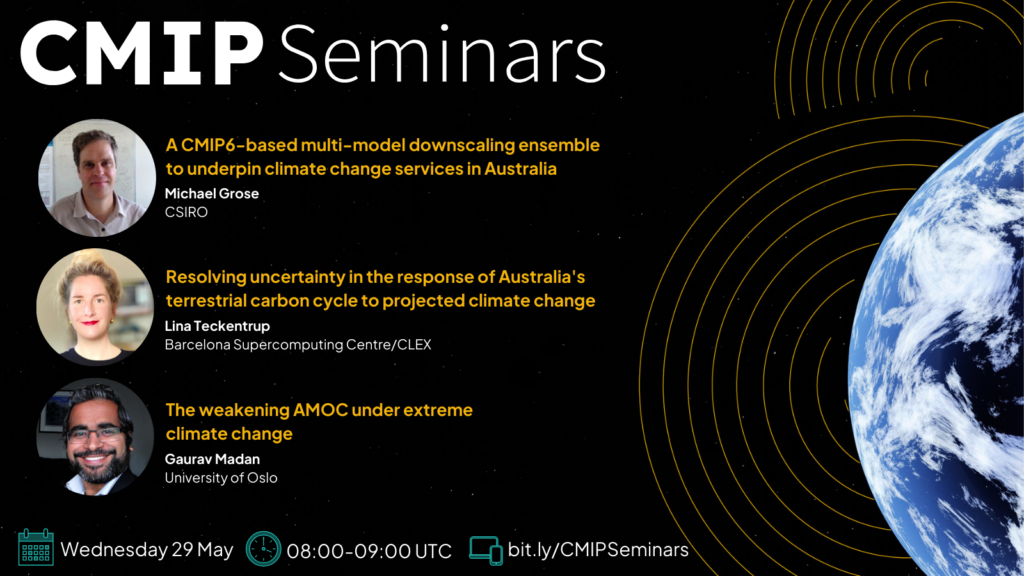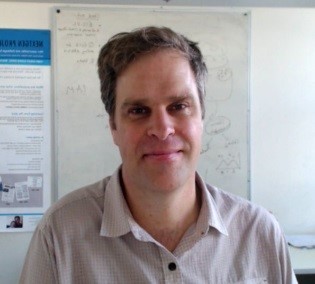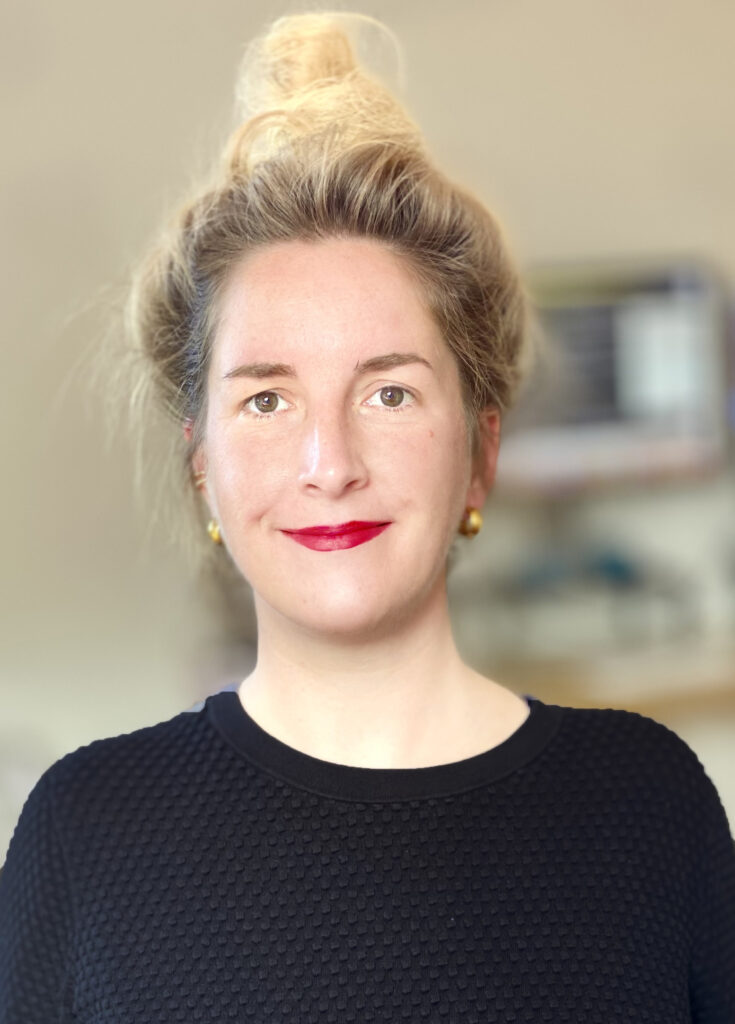
29 May @ 08:00 – 09:00 UTC
Second session of the CMIP Seminar Series.

Registration
Click the button below to register. We’ll send out information on how to attend the seminars to this list a few hours before the event starts. Note that, if you registered for a previous event, you are already registered for all future events.
Speakers

Michael Grose Research scientist, CSIRO
Title: A CMIP6-based multi-model downscaling ensemble to underpin climate change services in Australia
Abstract: Here I describe the generation of a multi-scenario, multi-model ensemble of simulations from regional climate models following CORDEX guidelines that will provide a core data source for regional climate projections and climate services in Australia in coming years, complemented by other sources of data and modelling. The ensemble is a major undertaking made possible through partnership of several groups. I will describe the issues challenges we faced in model selection, including data availability, model evaluation, independence and representativeness in the climate change signal and dealing with the ‘hot model’ problem. I will also describe our thinking in how to use such a carefully constructed but limited model ensemble, including using ‘storylines’ thinking.

Lina Teckentrup Recognised researcher, Barcelona Supercomputing Centre/CLEX
Title: Resolving uncertainty in the response of Australia’s terrestrial carbon cycle to projected climate change
Abstract: Semi-arid ecosystems, common across the Australian continent, strongly influence the inter-annual variability and trend in the global terrestrial net carbon sink. Here we explore the future Australian terrestrial carbon cycle using the CMIP6 ensemble, and the dynamic global vegetation model LPJ-GUESS. Uncertainty in Australia’s carbon storage in vegetation ranged between 6 and 49 PgC at the end of the century and was strongly linked to biases in the meteorological forcing. Using LPJ-GUESS with bias-corrected meteorological forcing reduced uncertainty in the vegetation carbon storage to between 14 and 20 PgC, with the remaining range linked to model sensitivities to rising atmospheric CO2 concentration, temperature, and precipitation variability. Reducing this uncertainty will require improved terrestrial biosphere models, but also major improvements in the simulation of regional precipitation by Global Climate Models.

Gaurav Madan Doctoral researcher, University of Oslo
Title: The weakening AMOC under extreme climate change
Abstract: Changes in the Atlantic Meridional Overturning Circulation (AMOC) in the quadrupled CO2 experiments conducted under the sixth Coupled Model Intercomparison Project (CMIP6) are examined. Increased CO2 triggers extensive Arctic warming, causing widespread melting of sea ice. The resulting freshwater spreads southward, first from the Labrador Sea and then the Nordic Seas, and proceeds along the eastern coast of North America. The freshwater enters the subpolar gyre north of the separated Gulf Stream, the North Atlantic Current. This decreases the density gradient across the current, and the current weakens in response, reducing the inflow to the deepwater production regions. The AMOC cell weakens in tandem, first near the North Atlantic Current and then spreading to higher and lower latitudes. This contrasts with the common perception that freshwater caps the convection regions, stifling deepwater production; rather, it is the inflow to the subpolar gyre that is suppressed. Changes in surface temperature have a much weaker effect, and there are no consistent changes in local or remote wind forcing among the models. Thus, an increase in freshwater discharge, primarily from the Labrador Sea, is the precursor to AMOC weakening in these simulations.
Interested in speaking at a future seminar? Let us know by clicking the button below.
Recordings
Michael Grose (CSIRO): A CMIP6-based multi-model downscaling ensemble to underpin climate change services in Australia
Lina Teckentrup (BSC/CLEX): Resolving uncertainty in the response of Australia’s terrestrial carbon cycle to projected climate change
Gaurav Madan (University of Oslo): The weakening AMOC under extreme climate change
